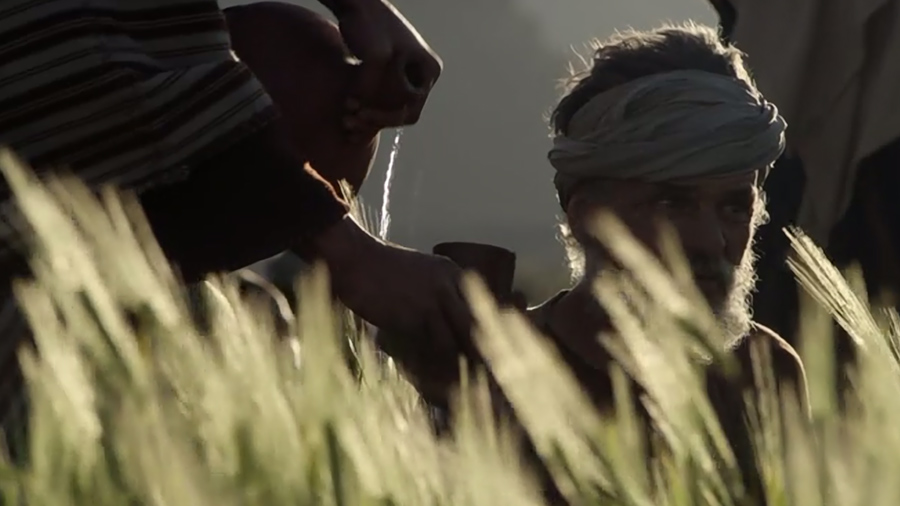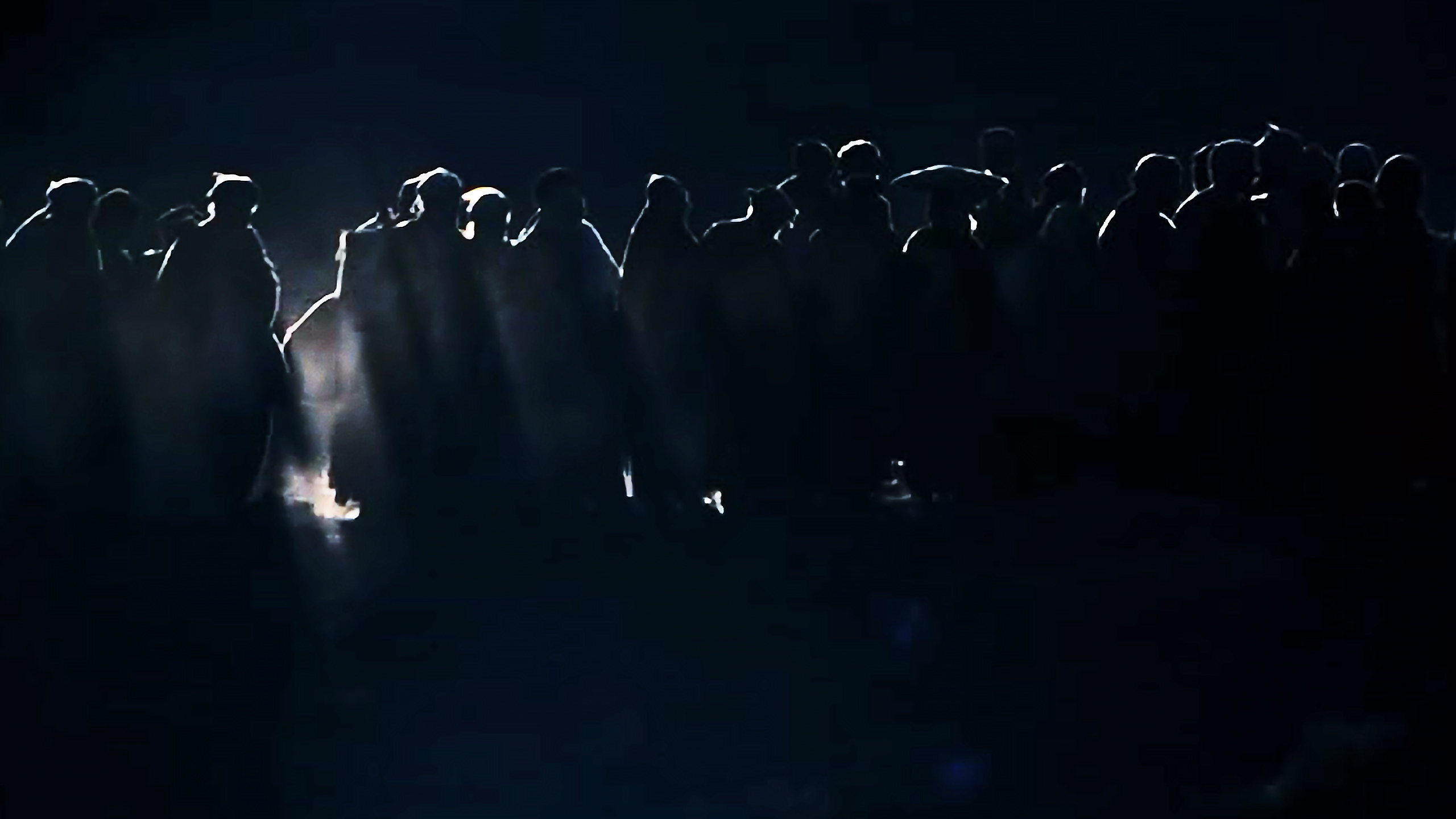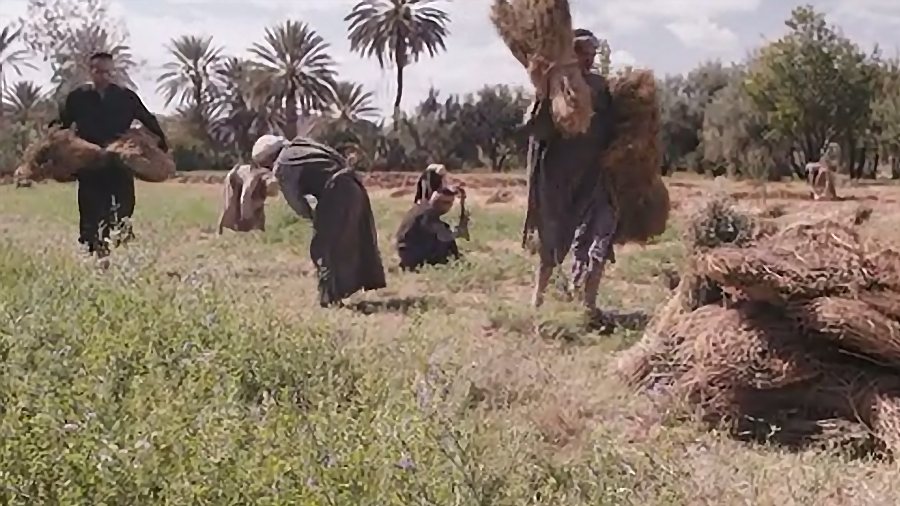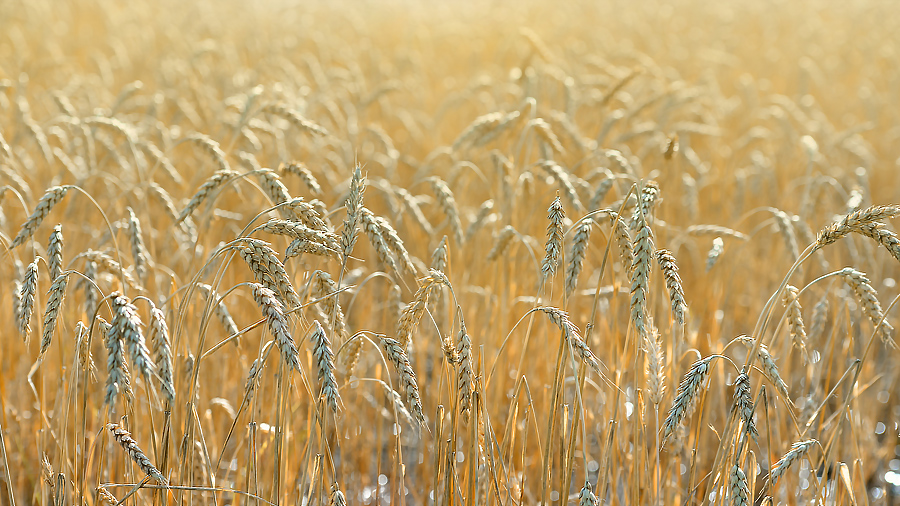[Jesus said to his disciples,] “Do you not say, ‘There are yet four months, then comes the harvest’? Look, I tell you, lift up your eyes, and see that the fields are white for harvest (John 4:35 ESV).
Jesus’ closest followers were in Samaria: a geographical region where Jews didn’t go, and among a race of people most Jewish people avoided (John 4:8). The last place these disciples would have ever expected to make disciples was Samaria. Jesus had been acting strangely. He was talking about the Father’s will and not needing food to sustain him (John 4:31-34). Then, he took a proverb about harvesting and challenged them to see that the time was ripe for the harvest of Samaritans into the kingdom of God.
Their natural response was, “I doubt it!” While none of them had the courage to say this directly to Jesus, you know they were thinking: “White to harvest… here… now… with these people? I doubt it!”

Jesus Calls Us Today:
Today, Jesus still calls to us through the centuries. He reminds us that “the fields are white for harvest” in our time. But, will we believe him?
As I visit with people at churches, people’s answers may be disguised, but their internal response is, “I doubt it!” You can see it in their eyes even if you don’t hear it. You don’t have to listen too closely to read between the lines and hear their “I doubt it!” Reasons, rationalizations, and even realities are given why they have their doubts.
“We live in a post-Christian culture. Most folks don’t want to talk about God or even faith!”
“The young kids won’t listen and the older folks are more interested in their health and their retirement.”
“I’m not even sure how to speak into this culture in any way that opens the door for talk about faith.”
“Folks today see religion and church as irrelevant. I’m not even sure how to get them interested.”
So, are the fields really white to harvest in our day? Can we believe Jesus about this? Or, do we explain Jesus’ words as simply a time-bound one-time utterance true for only that moment in history for the people of Samaria?
Our actions, our words, and our silent thoughts sure shout, “We doubt it!” We doubt the fields are white to harvest in our secular, post-modern, post-Christian age with the Internet and so many ideas competing for our time, thought, and engagement. So, little by little, we have given up in discouragement. We leave it to the professionals to figure out. Or if we are brutally honest, we’ve given up and simply don’t think about reaching the lost of our culture anymore because we doubt it can be done. And it most certainly can't be done by us... by me!
Nevertheless, the Lord Jesus still interrupts us with his reminder, a reminder that was no less challenging for those who first heard him say it in their time of racial hatred and social avoidance:
“Look, I tell you, lift up your eyes, and see that the fields are white for harvest.”

If the fields were white to harvest in their times of racial hatred, persecution, and social estrangement, couldn’t they still be white for harvest today?
Just because our old methods and old ways at engaging culture with discussions about Jesus don’t work today doesn’t mean that people have quit hungering and thirsting for a hope they have not yet found. For example, notice three fields ripe for harvest that are not hard for us to find in our day.
Field One:
Refugees are flooding into Western countries. Their lives are churning out of control with change, loss, and displacement. Many are open to friendship, compassionate care, and Jesus. They are willing to open their ears to people who open their hearts to them and love them — people who display the character and compassion of Jesus. While our politicians argue correct policies about immigration and refugees, we, as followers of Jesus, can step into the lives of these people that God has sent to us. They are the neighbors we are called to love. We can be the hands and feet of Jesus as genuine friends. Personally, I have experienced the joy of many refugees coming to Jesus. These are people at our doorstep that longing for a new life. We have the bread and water of life to share with them. These fields are ripe for harvest in many of our cities, schools, and neighborhoods.
Field Two:
While many of today’s younger generations do not respond well to the old forms of programmatic evangelism and to going to church to experience Jesus, many are passionate about serving those in need. Jesus promised that as we help others in need that we could experience his presence (Matthew 25:40). When we invite young adults into helping with us, they get to share in the experience. They are also quick to respond to discussions about spirituality, community, service, and doing good. Inviting them into our mission and service trips helps them to experience the presence of Jesus through togetherness. As we join them in their community outreach, we build relational bridges that form the basis of meaningful dialogue. In the process, we develop a friendship, and they see a completely different side of modern faith than what they are fed in the media.
Field Three:
Each of us is placed into a circle of relationships. I like to call these spheres of kingdom influence. We are not in these circles of kingdom influence by chance. God has entrusted the people in our circles to us. Each of us plays a unique role in one of these circles. If we are a person of salt and light, a servant of Jesus full of gracious compassion and righteous character, many in our circles will open up and invite us into their worlds. That doesn’t mean we are the self-righteous experts or we are faking friendship to find an opportunity to preach them out of sin. Anything disingenuous, manipulative, or fake drives them away. But, if we are in their lives as true friends, if we are there to serve and listen genuinely, some of them will open up to us. Many are trying to find their way out of the darkness that grips them. They simply have no one who will listen, care, and walk with them through it to the light. Learning to listen to their hurts, to laugh with them at their experiences, and being there with them in the ebb and flow of life opens up natural moments to gently introduce them to Jesus.
Jesus Still Reminds Us:
Jesus still reminds us: “Look, I tell you, lift up your eyes, and see that the fields are white for harvest.” So let’s open our eyes, our hearts, and ears to the people around us. Let’s pray for people whom we know need Jesus to open up to Jesus. Let’s pray that the Holy Spirit will help us know when the door of their heart opens and be ready to walk with them and introduce them to Jesus.

After Thoughts:
But, many folks ask the question, “How do I begin?”
Here’s a simple plan I’ve used for years and shared with many others. It’s about developing a heart for others and yearning to expose them to Jesus.
- Read through Matthew, Mark, Luke, and John. As we do, notice how Jesus is with people. Let’s notice how he cares for them, touches them, listens to them, is present with them, defends them, and loves them. As we read, let’s ask Jesus to teach us to love, serve, and engage the hearts of people as he did.
- Learn to love people. Be around them. Listen to them. Serve them. Watch them. Ask them questions. Engage them in conversation. Find out about their families, their lives, their work, their dreams, and their wounds. Most of us engage in certain sets of people regularly — wait staff, check out counters, convenience stores, the cleaners, kids events, neighbors, and school or work acquaintances. So let’s begin to pray for them. Not generally, but specific prayers for the things we know and learn about them. Let’s also pray for the opportunity to share Jesus in a natural way out of a relationship we build with them.
- Be ready to share our personal story of how Jesus has blessed our lives. Peter reminded his group of Christian friends in Asia Minor to always be prepared. He wanted them to be ready to share the reason for the hope they had in Jesus (1 Peter 3:15). Even though they lived in a time of opposition, marginalization, and persecution, he told them to be ready to give their answer with gentleness and respect. Hostile times do not mean unwelcome times for the gospel. It just means we need to be people of character and compassion ready to share our hope.
- Have a simple plan to share the big story of God. The Bible is confusing to folks who do not know it. No one knows much about the over-arching story or what it is trying to say to us. My favorite simple way to share God’s big story involves three key words:
BROKEN
BRIDGE
BLESSINGMost people recognize that while there are goodness and beauty in our world, something is broken. That is what Scripture says as well. God sent Jesus to be our bridge back to his desire to bless us and have a relationship with us. Once we know Jesus and follow him, Jesus gives us the promise of living with God and enjoying his blessing together forever and the purpose for our lives right now: to share God’s blessings with others.
- Find a simple way of sharing how people can and should respond to Jesus once they begin to know him and want to follow him. I particularly like to go to Acts 2:22-47. I walk people through Peter’s sermon on Pentecost because they can go back and look at it for themselves. It is also the place that the first people outside of Jesus early disciples became Christians. We know this message is God-ordained because Peter preached it. It flows in a simple outline of what Peter taught. These non-believers needed to believe some things about Jesus (Acts 2:22-38). Peter then told them how they needed to respond to follow Jesus (Acts 2:38-39). Then, Peter promised them certain blessings if they responded to the message of Jesus (Acts 2:40-41). Finally, we see them living a certain new lifestyle — their responsibilities to Jesus — as his followers (Acts 2:42-47).
But, don’t let all of this overwhelm you. Begin first by believing Jesus when he says: “Look, I tell you, lift up your eyes, and see that the fields are white for harvest.” Losing our doubt and beginning to look to the fields is the beginning of a whole new adventure in grace. It will change you forever!








Reader Comments
Archived Facebook Comments